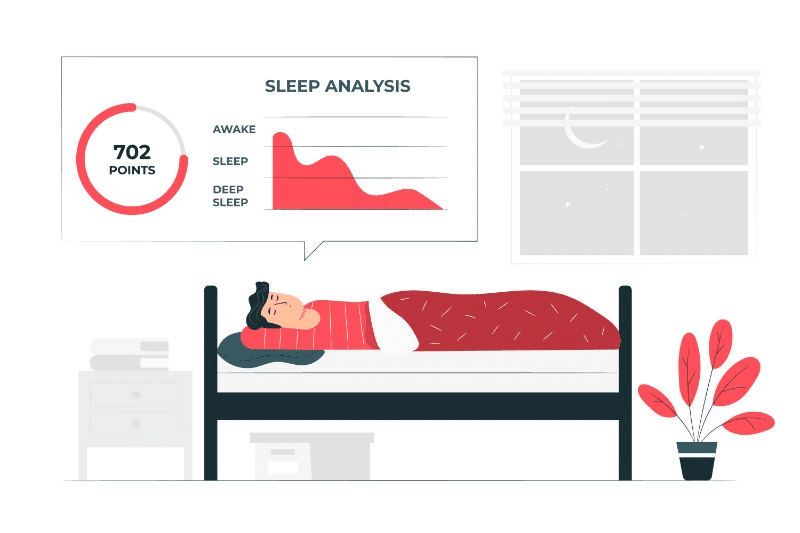Key Takeaways
- L-Theanine is generally safe for consumption, but it’s important to follow safe dosage guidelines and use high-quality products.
- Understanding the benefits of L-theanine, such as stress reduction, anxiety reduction, cognitive performance enhancement, improved sleep quality, and immune system boosting, can help individuals make informed decisions about its usage.
- When considering L-theanine intake, healthy people and patients should know its potential impact on blood pressure management and consult a healthcare professional if necessary.
- It’s crucial to identify high-quality L-Theanine products to ensure safety and effectiveness.
- Recognizing and being mindful of the potential side effects of L-theanine is essential for safe usage.
- To ensure the safety of L-Theanine consumption, individuals should always consult with a healthcare professional, especially if they have underlying health conditions or are taking medications.
Is L-theanine Safe?
Potential Benefits
L-theanine is a natural amino acid in tea leaves, particularly green tea. It has garnered attention due to its potential health advantages and remarkable safety record. Research suggests that L-theanine may promote relaxation, improve focus, and reduce stress without causing drowsiness. L-theanine makes you feel calm by increasing alpha-brain waves, which help you relax without feeling sleepy. It’s good for people with anxiety or stress. Also, it helps your brain work better when combined with caffeine without making you feel jittery. Studies have also indicated that l-theanine may support cardiovascular health by helping regulate blood pressure and cholesterol levels. Its antioxidant properties further contribute to its potential role in protecting against oxidative damage caused by free radicals.Safety Profile
Numerous studies have established that l-theanine is well-tolerated and safe for consumption at recommended doses. It does not cause dependency or withdrawal symptoms even after prolonged use. Unlike some substances used for relaxation purposes, such as alcohol or certain pharmaceuticals, l-theanine does not impair motor function or cognition. Moreover, due to its presence in tea – a widely consumed beverage – extensive real-world evidence supports the safety of consuming l-theanine, further reinforcing its favorable safety profile.Understanding L-Theanine and Its Benefits
Promotes Relaxation
L-theanine is a safe compound with various benefits, including promoting relaxation without causing drowsiness. It can help individuals unwind and de-stress without feeling lethargic or tired afterward. For example, imagine feeling calm and composed during a stressful situation, such as before an important exam or job interview. It achieves this by increasing alpha brain waves, which are associated with a state of wakeful relaxation. These effects contribute to reducing anxiety and improving overall mood. As a result, many people find l-theanine an effective tool for managing everyday stressors while maintaining mental clarity.Improves Focus and Attention
Another noteworthy benefit of l-theanine is its ability to improve focus and attention. Modulating neurotransmitters in the brain helps sharpen cognitive function without causing jitteriness or restlessness commonly associated with stimulants like caffeine. Picture being able to concentrate better on tasks, whether studying for exams or focusing on work projects. The compound also has the potential to enhance learning capacity by positively influencing memory formation and recall processes in the brain. Therefore, incorporating l-theanine into one’s routine may improve productivity and mental acuity throughout the day.L-Theanine’s Role in Stress and Anxiety Reduction
Stress Reduction
L-theanine has been associated with reducing the body’s physiological responses to stress. It helps by increasing the production of calming neurotransmitters, which can have a soothing effect on the body. For example, it may lower heart rate and blood pressure, helping individuals feel more relaxed when encountering stressful situations. Animal studies have shown that theanine can reduce stress-related behaviors in response to challenging situations. This suggests its potential as a natural remedy for managing stress in humans and animals.Anxiety Alleviation
Studies indicate that theanine might alleviate symptoms of anxiety due to its impact on neurotransmitters like serotonin and dopamine. These play crucial roles in regulating mood and emotions. By promoting the release of these calming chemicals, theanine could potentially help individuals manage feelings of anxiety and tension more effectively. Research has suggested that theanine influences glutamate receptors in the brain, which are involved in excitatory signaling pathways linked to stress responses. Modulating these receptors’ activity may contribute to reducing anxious feelings during times of heightened stress or worry.- Animal studies support the role of l-theanine in reducing stress-related behaviors.
- The compound may promote relaxation by lowering heart rate and blood pressure.
- L-theanine’s influence on neurotransmitters like serotonin could aid in alleviating symptoms of anxiety.
Cognitive Performance Enhancement with L-Theanine
Cognitive Enhancement
Research indicates that l-theanine may enhance cognitive function. It has been shown to improve attention and reaction time, as well as have a positive impact on memory and learning. For example, in a randomized placebo-controlled clinical trial, participants who consumed l-theanine showed improved attention during mental tasks compared to those who took a placebo. L-Theanine’s potential to positively impact cognitive performance is particularly notable when combined with caffeine. Studies have demonstrated that the combination of l-theanine and caffeine can lead to improvements in sustained attention and subjective alertness. This suggests that l-theanine benefits cognitive function and amplifies the effects of other substances like caffeine.Neuroprotective Effects
In addition to enhancing cognitive performance, research suggests that l-theanine may also possess neuroprotective effects. These effects could contribute to overall brain health by protecting against certain damage or deterioration. One study found that individuals who regularly consumed l-theanine exhibited increased alpha brain wave activity, associated with wakeful relaxation and enhanced creativity. This further supports the idea that l-theanine can positively influence brain function beyond improving specific cognitive tasks.L-Theanine for Improved Sleep Quality
Potential Benefits
L-theanine has been studied for its potential to improve sleep quality. It may help promote relaxation and reduce nighttime wakefulness, contributing to more restful sleep. The compound could be beneficial for individuals struggling with sleep issues. L-theanine’s ability to promote relaxation and reduce nighttime wakefulness makes it a promising option for those seeking improvements in their sleep patterns. For people who often find themselves tossing and turning at night, using this amino acid might offer an opportunity for better rest.Considerations
When considering whether l-theanine is safe, it’s important to note that research suggests it has few side effects when taken at appropriate doses. However, as with any supplement or medication, you must consult a healthcare professional before adding l-theanine or any other new substance into your daily routine. It’s vital to remember that individual responses can vary; what works well for one person may not have the same effect on another. While l-theanine shows promise in improving sleep quality, it should not replace other healthy habits that support good sleep, such as maintaining a consistent bedtime routine and creating a comfortable sleeping environment.Health Benefits and Immune System Boosting with L-Theanine
Immune System Support
L-theanine has been associated with immune system support. It exhibits antioxidant properties that may benefit overall health. Studies have shown that l-theanine can help enhance the body’s defense against infections and diseases, making it a valuable ally for maintaining a healthy immune system. In a study published in Cancer Lett, researchers found that l-theanine could potentially aid in suppressing the growth of cancer cells. This underscores its potential as a dietary supplement for promoting overall well-being and supporting the body’s natural defenses against serious illnesses.Potential Health Benefits
The compound’s potential health benefits make it an intriguing supplement for healthy adults looking to bolster their wellness routine. Besides immune system support, l-theanine is also known to promote relaxation without causing drowsiness, improve cognitive function, and reduce stress levels. Moreover, l-theanine is considered safe when consumed in appropriate amounts. Its safety profile makes it an attractive option for those seeking additional general health and well-being support.L-Theanine’s Impact on Blood Pressure Management
Potential Benefits
L-theanine has been associated with maintaining healthy blood pressure levels. Studies have suggested that the compound could support cardiovascular health by impacting endothelial function, which is crucial for regulating blood flow and pressure. This suggests that l-theanine may contribute to overall heart health and blood circulation. Research involving hypertensive rats has indicated that l-theanine might help reduce elevated blood pressure levels (et al). The compound appears to affect lowering both systolic and diastolic blood pressure, indicating its potential as a natural approach to managing hypertension.Further Exploration
The effects of l-theanine on heart rate, another important factor in blood pressure regulation, also warrant further investigation. Understanding how this amino acid derivative influences heart rate could provide valuable insights into its potential impact on cardiovascular function. Exploring the mechanisms through which l-theanine affects the circulatory system can offer a more comprehensive understanding of its role in promoting healthy blood flow and pressure regulation.Safe Dosage Guidelines for L-Theanine Intake
Recommended Dosage
The recommended l-theanine dosage typically falls within the range of 100–400 mg per day. This amount is considered safe and effective for most individuals. However, it’s crucial to note that each person may respond differently to l-theanine, affecting their optimal dosage. Some people might experience the desired effects with a lower dose, while others may require a higher amount to achieve similar results. When determining the appropriate doses of l-theanine, it’s important to consider factors such as body weight, age, overall health, and pre-existing medical conditions. Consulting with a healthcare professional can provide valuable guidance in establishing an individualized dosage plan that aligns with specific needs and circumstances.Adhering to Safe Guidelines
Adhering to safe dosage guidelines is essential when using l-theanine supplements. While this compound is generally well-tolerated by most individuals, consuming excessively high doses without proper supervision or guidance can lead to adverse effects such as dizziness or gastrointestinal discomfort. It’s advisable not to exceed the recommended daily l-theanine intake, as doing so could result in unwanted side effects. By following safe guidelines and being mindful of one’s unique response to l-theanine, individuals can maximize its benefits while minimizing any potential risks associated with excessive consumption.Identifying High-Quality L-Theanine Products
Reputable Manufacturers
 It’s crucial to prioritize products from reputable manufacturers. These companies often adhere to strict quality control measures and are more likely to produce safe and effective supplements. Look for well-known brands with a proven track record in the industry.
Reputable manufacturers are more transparent about sourcing, production processes, and ingredient quality. This transparency can give consumers peace of mind regarding the safety of the l-theanine product they’re considering.
It’s crucial to prioritize products from reputable manufacturers. These companies often adhere to strict quality control measures and are more likely to produce safe and effective supplements. Look for well-known brands with a proven track record in the industry.
Reputable manufacturers are more transparent about sourcing, production processes, and ingredient quality. This transparency can give consumers peace of mind regarding the safety of the l-theanine product they’re considering.
Third-Party Testing
Consider choosing l-theanine supplements that undergo third-party testing for quality and purity. These tests are conducted by independent laboratories, ensuring an unbiased assessment of the product’s composition. Third-party testing helps verify that the supplement contains what it claims without harmful contaminants. Furthermore, third-party testing adds another layer of assurance regarding the safety of l-theanine consumption. It provides consumers with tangible evidence that supports the product’s efficacy and safety profile.Certifications such as NSF or USP
Looking for NSF or USP certifications can show if l-theanine products are good and safe. NSF certification means the product meets health standards, while USP verification shows it follows strict rules for purity, strength, and how it’s made.Recognizing Potential Side Effects of L-Theanine
Mild Side Effects
L-theanine is generally well-tolerated by most people. However, mild side effects such as headaches or gastrointestinal discomfort may occur in some individuals. These reactions are usually rare and not experienced by the majority of users. Some individuals might experience mild symptoms like dizziness or low blood pressure when taking l-theanine supplements. It’s essential to note that these symptoms are infrequent and don’t typically pose significant health risks.Adverse Reactions
Rare adverse reactions to l-theanine have been reported, but they are uncommon. While it’s crucial to be aware of potential adverse effects, it’s important to emphasize that serious complications from l-theanine consumption are extremely rare. Consumers need to understand the possible side effects of l-theanine to make informed decisions about its usage. Despite the minimal likelihood of experiencing negative reactions, knowing about potential side effects is essential for responsible supplement use.Safety of L-Theanine
Limited Research
Research on the safety of L-theanine is still limited, with most studies being small or not fully controlled. These small studies make it challenging to draw definitive conclusions about its safety. While some positive results have been observed in these small studies, more extensive and controlled research is needed to confirm the safety of L-theanine. For example, a controlled study involving a larger sample size would provide more reliable data.Randomized Trials
Randomized trials are necessary to establish the safety of L-Theanine conclusively. These trials involve randomly assigning participants to different groups to ensure unbiased results. Currently, the lack of extensive randomized trials limits our understanding of the long-term safety of L-theanine. Despite the absence of comprehensive research, L-theanine is generally considered safe when consumed in appropriate amounts. However, individuals should still exercise caution and consult healthcare professionals, especially if they have preexisting medical conditions or are taking medications.Frequently Asked Questions
Is L-Theanine safe for regular consumption?
L-Theanine is generally considered safe when taken in appropriate dosages. It’s a natural amino acid found in tea leaves and has been consumed for centuries with minimal reported side effects.What Are the Recommended Dosage Guidelines for L-Theanine and What Are the Potential Risks?
When it comes to L-Theanine, recommended dosage guidelines can vary depending on the individual’s needs and health status. Typically, doses of 200-400mg per day are considered safe and effective. However, exceeding this amount may pose potential risks of ltheanine such as headaches, dizziness, and gastrointestinal issues. Always consult a healthcare professional before starting any new supplement regimen.

